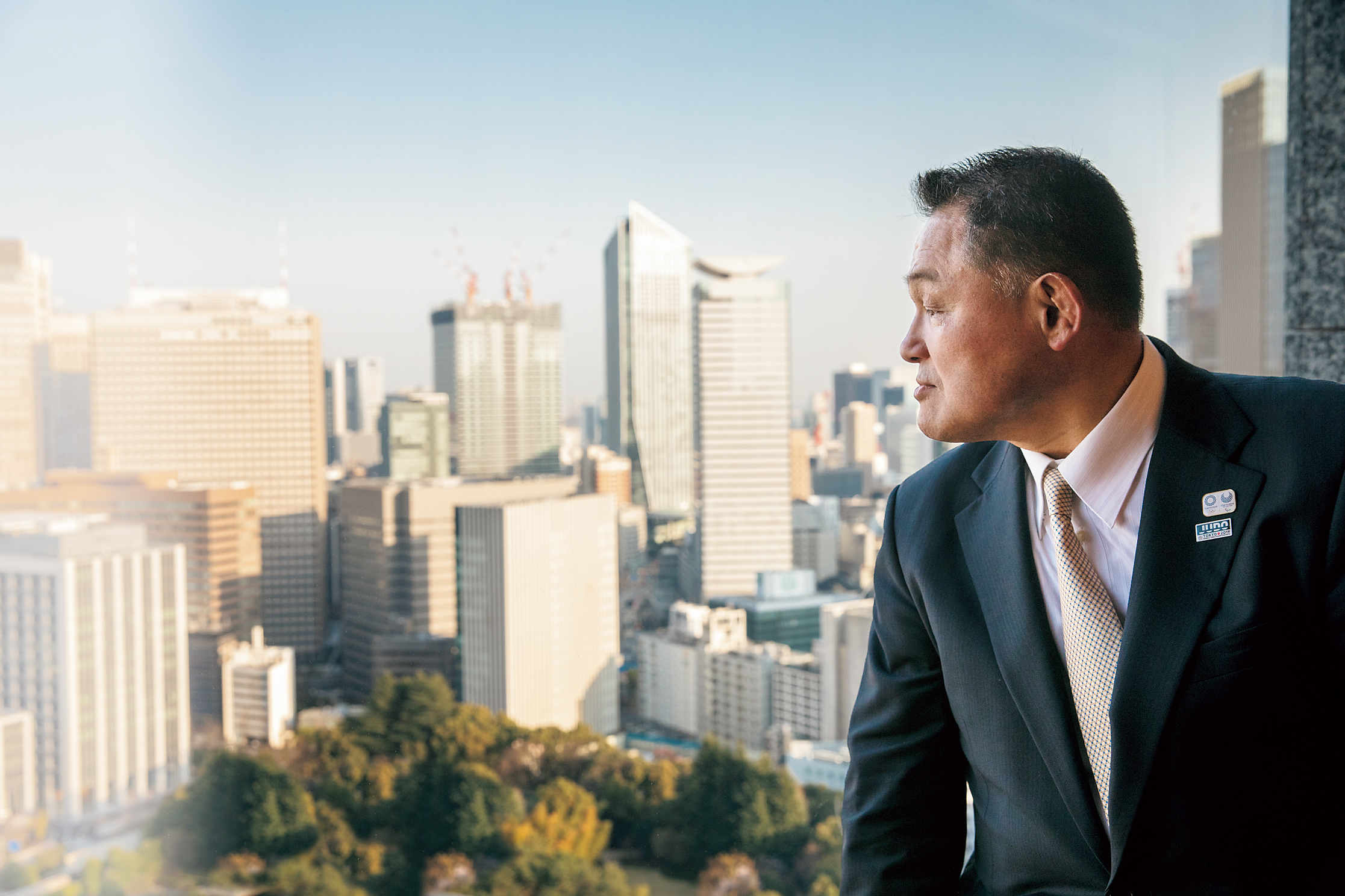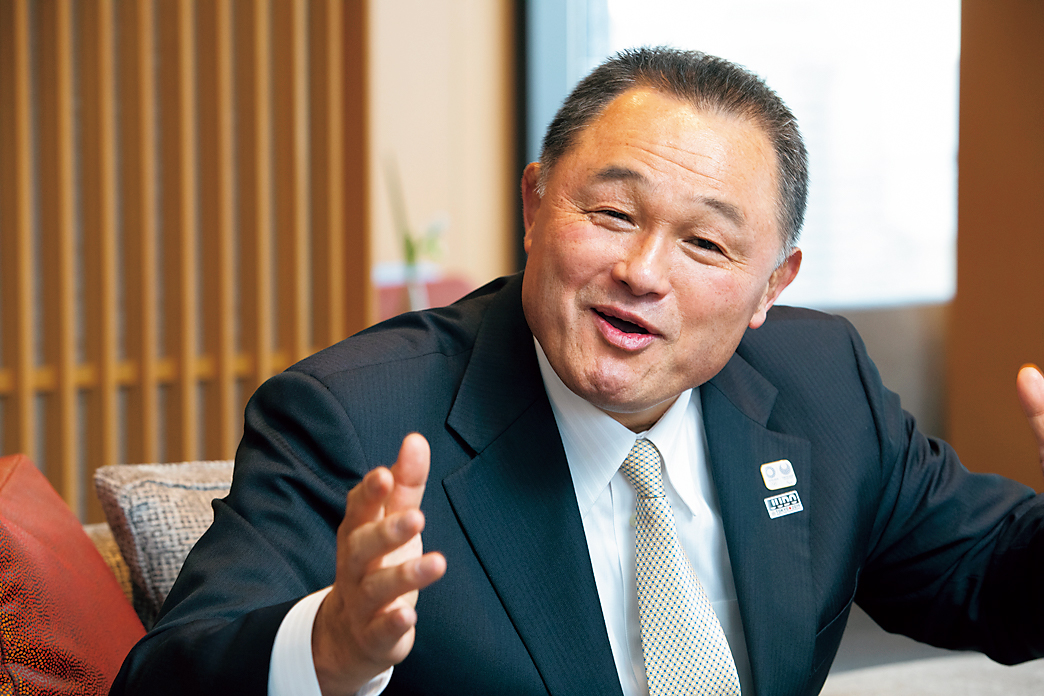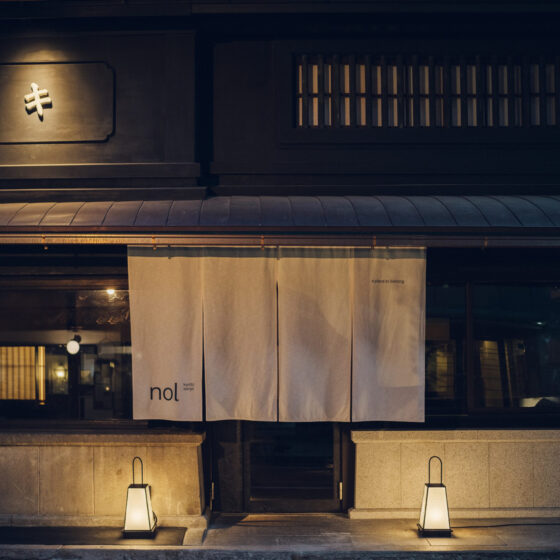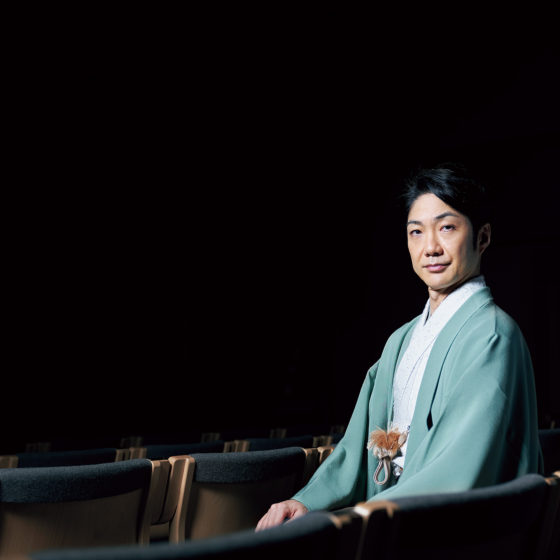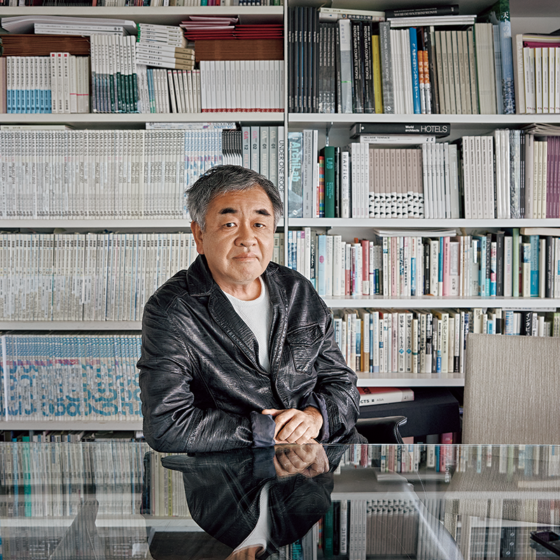- Between October 1977 and his retirement from competition in 1985, renowned judoka Yasuhiro Yamashita remained unbeaten for 203 consecutive matches, having last lost to a decision in his second year at university. He competed 119 times against non-Japanese judoka, but nobody could beat him. The phrase ‘accomplished’ doesn’t seem enough to express what he has achieved as an athlete. And yet his facial expression was so soft that the photographer couldn’t help but murmur about how kind his face was.
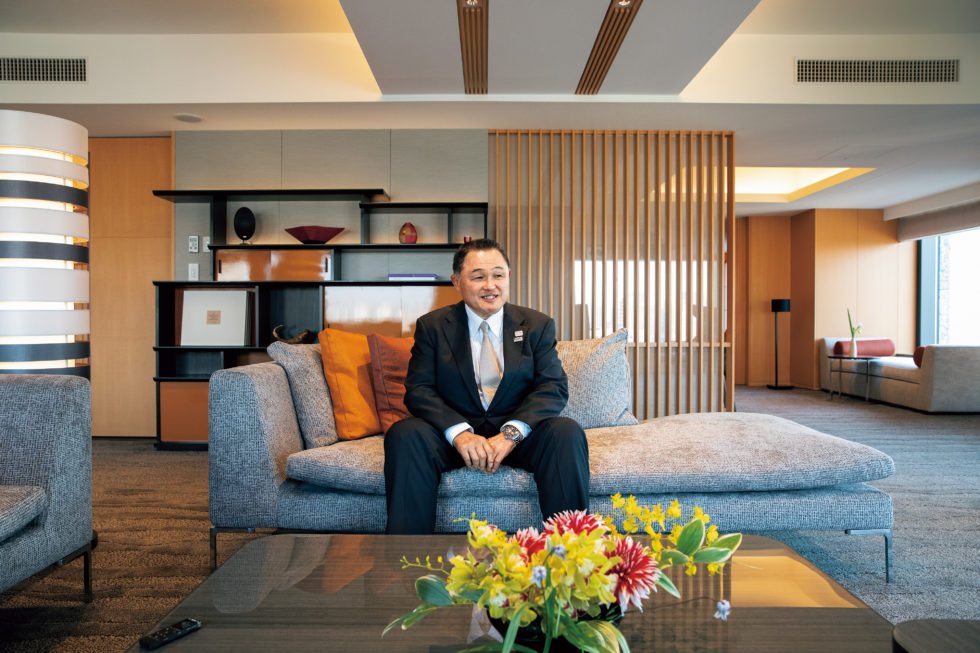
- I like people with kind faces. That’s because I was often told when I was a professional athlete 35 years ago that when I stepped on the tatami I had a murderous stare.
- Most of the opponents I lost to when I was at school were almost all world champions or gold medallists 7-10 years older than me, not the sort of opponents that a high school student would normally play against. I’ve shattered the dreams of many players of my generation. I’ve almost done too much downing and defeating of people in order to achieve my own dreams. I’ve had enough of competing. If I can, I’d like to join people in going after dreams. If I’m going to fight, I want it to be against something big, for the sake of everyone’s dreams.
- I want to set myself the challenge of a great dream, of doing something that doesn’t hurt anyone.
How Japan’s unhappiest man became the happiest in the world
- The teacher I respected (Dr. Shigeyoshi Matsumae, the founder of Tokai University) died when I was in my mid-thirties. Sensei left me with these words:
- “The reason I have supported you is not just because I wanted you to win matches. I want you to strengthen friendship with the young people of the world through Japan’s native judo. More than that, in future I want you to become somebody who contributes to world peace through sports. That’s why I’ve supported you all this time. Do you understand my feelings?”
- This was the last conversation I had with him.
- From a young age onwards, I was always the sort of child who would be first to jump into a contest. I also think my desire to defeat foreigners was strongly than other people. But through meeting non-Japanese and having experience with them, I finally came to realize as I was learning about all sorts of things that non-Japanese athletes were not opponents or enemies, and that they were simply fellow judoka.
- It was in 1980, when my Olympic dream was shattered by Japan boycotting the 1980 Moscow Olympics, a cruel decision for the athletes. The day after the boycott was decided, I broke my leg in a match. Apparently in the hushed hall you could hear my fibula snapping, right up to the second level spectator seats. The next day the newspapers carried the story on the front page, saying I was Japan’s unluckiest man.
- Although I wasn’t able to compete, I did fly to Moscow to watch the Olympics. On the first day of competition, only competing athletes were allowed on the first floor of the arena so I sat in a second floor spectator seat. Athletes competing that day saw me, and everyone came up and said things to me like “Hey Yamashita, is your leg okay?” “You’ll be able to do judo again,” and “Hang in there.”
- That made me glad and happy. They weren’t enemies. If they were, it was only when we stepped onto the tatami. We have a mutual understanding of the effort involved, the self-discipline, and the challenges we’ve overcome. From that moment when I realized that they’d been friends and comrades all along, for the next eight days until the last match had ended, I cheered them on at the top of my voice whenever they were competing. It didn’t even enter my head that I should also have been competing there. I was simply impressed and moved by watching them doing their best towards their dreams.
There is nothing to be afraid of.
I just want them to compete for themselves.
- People often told me when I was competing that it must be tough for me because I couldn’t afford to lose. I always replied: “Why can’t I afford to lose? Don’t decide that for me. Winning isn’t easy, you know.” But I understood their feelings and support.
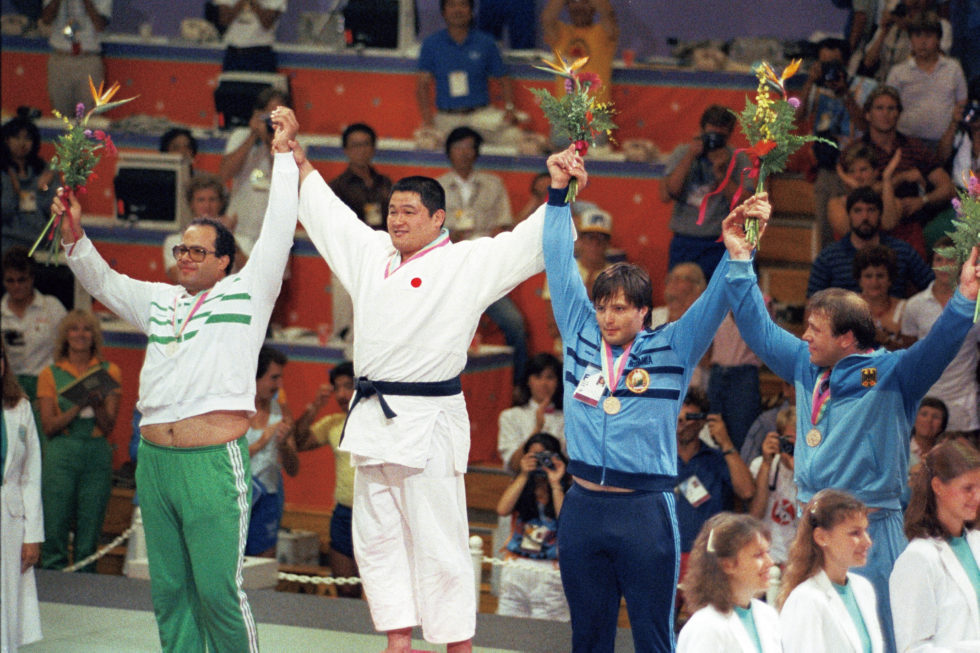
- It was the same for the next Olympics in Los Angeles: people probably thought I would come out bearing the Japanese flag, determined not to be defeated. But that wasn’t the case. I just wanted to win. I wanted my dream to come true.
- Your will and determination mobilizes your body. If you don’t have a strong desire to win, your body will be useless no matter how highly trained. Even if you can physically run 100m in ten seconds, if you don’t have the will to run fast you won’t be able to. I think the same holds true of work. Your will and determination pulls you into action. If you don’t have a strong desire to win, you won’t be able to apply a fifth or even a tenth of your strength. You won’t produce strength by believing you can’t be beaten, or thinking you won’t stand for defeat, or apologizing for losing.
- So, when I was coaching the national team, I used to ask the press to stop saying to my athletes, “It must be tough.” There’s nothing tough about it. You reap what you sow in the sense that only one person in Japan can take on that dream at that level. It’s not tough. I used to tell them the athlete is a happy person. What the media says isn’t right. What they should be asking is, “Fantastic. And how’s your state of mind now you’re in a position to take on your dreams?”
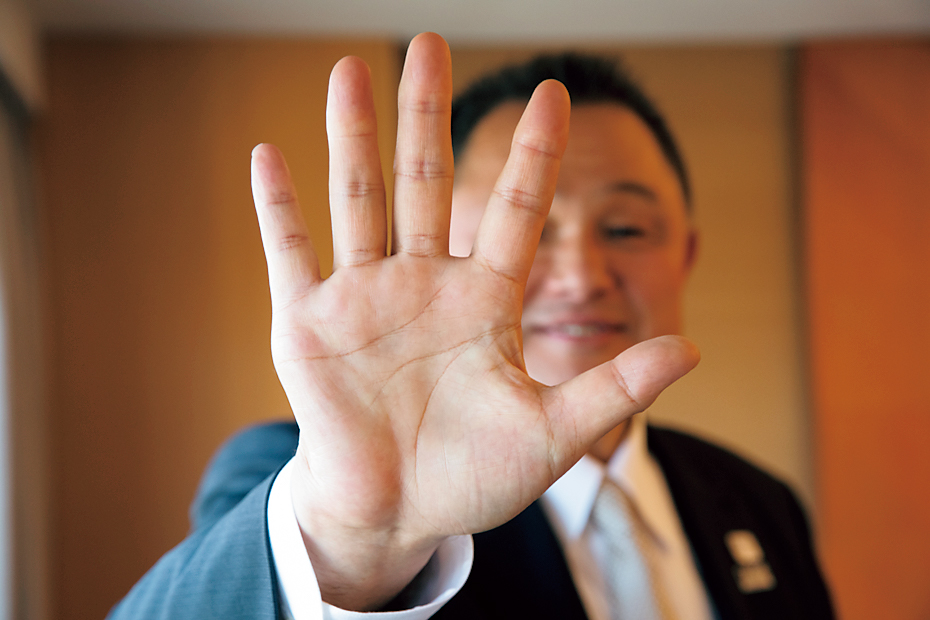
- I tell the athletes that they have nothing to lose if they are beaten. You go for a dream, and even if you fail in your first match, there is so much to learn from life. Compared to an athlete who has missed taking part in a match by a fine line, it makes a huge difference even to have the experience of stepping into that arena. I tell them there is nothing to be afraid of.
- As President of the Japanese Olympic Committee I’ve set a target for Tokyo 2020 of thirty gold medals. The most we’ve won in the past is sixteen so it’s no easy target.
- I want the Japanese Olympic and Paralympic athletes to believe in themselves and take on the challenge of their own dreams to the very end. I want them to compete for themselves. I would like them to shine for that big moment. If they can do that, the results will come naturally.
- For many athletes, once every four years means once in a lifetime. The Olympics are worth giving your all for, challenging yourself for. My role is to create an environment together with the sporting organizations involved which will allow athletes to go for their dreams with confidence. I intend to do all I can to make these an Olympics in which everyone can experience dreams and emotions and feel hope and pride when they see the athletes competing with such passion and determination. This is my current challenge. It’s going to be a hot summer.
- I would also like to ask everyone not to forget to cheer on the international athletes, and not just support the Japanese ones.
